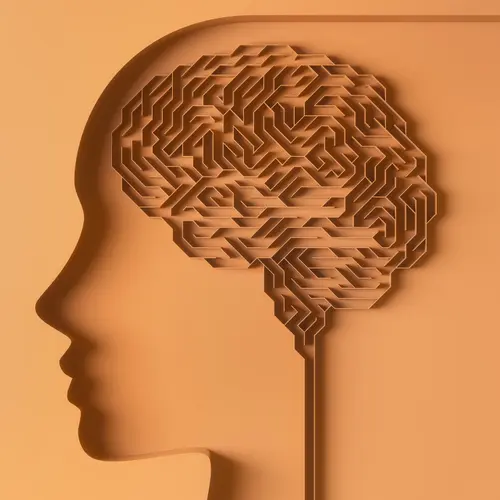Science is key to learning more about health conditions, including mental illness. While experts still don’t fully understand all aspects of schizophrenia, the number of research studies published over the past 25 years has quadrupled. Research continues to offer insight into the illness’s causes, diagnosis, and treatment.
Schizophrenia Causes
Researchers aren’t exactly sure what causes schizophrenia, but they’ve identified several possible reasons which may combine to put people at risk. And they’re using cutting-edge technology to make discoveries.
Genes
One area of research that’s shown progress is the role of genes. Scientists recently published the largest-ever whole-genome sequencing (WGS) study of schizophrenia. WGS is a technology that shows the entire DNA make-up. It also helps researchers to better understand differences within and between living things.
Using WGS, researchers in the schizophrenia study noticed DNA changes (mutations) that scientists had never seen before. They suggest that certain differences in the boundaries of your DNA structure raise your risk of the disease. Researchers found these changes more often in people with schizophrenia. How those changes are involved in the condition remains to be seen.
Brain connections
Advances in technology have also allowed researchers to find new clues into schizophrenia inside the brain. For the first time, brain scans of people with schizophrenia show lower levels of a protein found in the connections between neurons (special cells in the nervous system that send information to other cells).
Researchers used positron emission tomography (PET) scans to track a radioactive substance injected into the brain called a tracer, which binds to the SV2A protein. In people with schizophrenia, this protein was lower in the part of the brain involved in planning. The significance of this in schizophrenia isn’t clear yet.
Until now, researchers were only able to study these brain connections in animals or people who had died. Researchers say the discovery could lead to new treatments for memory-related symptoms. Right now, schizophrenia treatments only target symptoms of psychosis like delusions.
Schizophrenia Diagnosis
In recent years, the American Psychiatric Association (APA) and the World Health Organization (WHO) have revised their suggestions for how health care providers should classify and diagnose schizophrenia. They recommend:
- No longer grouping the illness into subtypes like paranoid schizophrenia
- Putting less weight on certain symptoms and more on others like delusions and hallucinations
- Focusing more on how long someone has had symptoms (1-6 months) and figuring out if other things could be causing them
- A rating system to gauge both the mental and physical symptoms of schizophrenia
Schizophrenia Treatments
As researchers learn more about schizophrenia, how they treat the disease continues to evolve.
New medications
Most schizophrenia medicines target the chemical brain messenger (neurotransmitter) dopamine. But researchers are working on a new generation of drugs aimed at other neurotransmitters. They could ease:
- Cognitive symptoms, or problems with memory, thinking, and judgment
- Side effects of current drugs like uncontrolled movement and heart rhythm problems
- “Negative” symptoms of schizophrenia like reduced pleasure, social activity, and expression of emotion
Targeted psychotherapy
Many studies over the past 20 years show that psychotherapy works well to ease schizophrenia symptoms. Beyond treating overall mental health, today, psychotherapy research focuses on specific schizophrenia symptoms like hearing things that aren’t really there (auditory hallucinations). Results are promising, and researchers say this targeted treatment could be another option to traditional therapy.
Brain stimulation
Other possible new schizophrenia treatments involve the brain:
- Transcranial magnetic stimulation (TMS) uses magnetic fields to stimulate nerve cells in your brain. It’s painless and doesn’t require cutting.
- Deep brain stimulation (DBS) uses electrical pulses to balance abnormal impulses or certain cells and chemicals. DBS does require surgery to place electrodes and the device that controls them inside your brain.
These treatments could be an alternative to medication, but scientists will need to do more research to find out if they work for people with schizophrenia.
Schizophrenia Research Outlook
While new treatments could help people with schizophrenia in the future, researchers say the best approach is to advance treatments available right now.
Studies show about half of all people with schizophrenia don’t get treatment for the illness. More information about symptoms, available treatments, and access to mental health services could bridge the gap. Researchers also say that mental health programs should address stigma and prejudice against people with mental illness.

